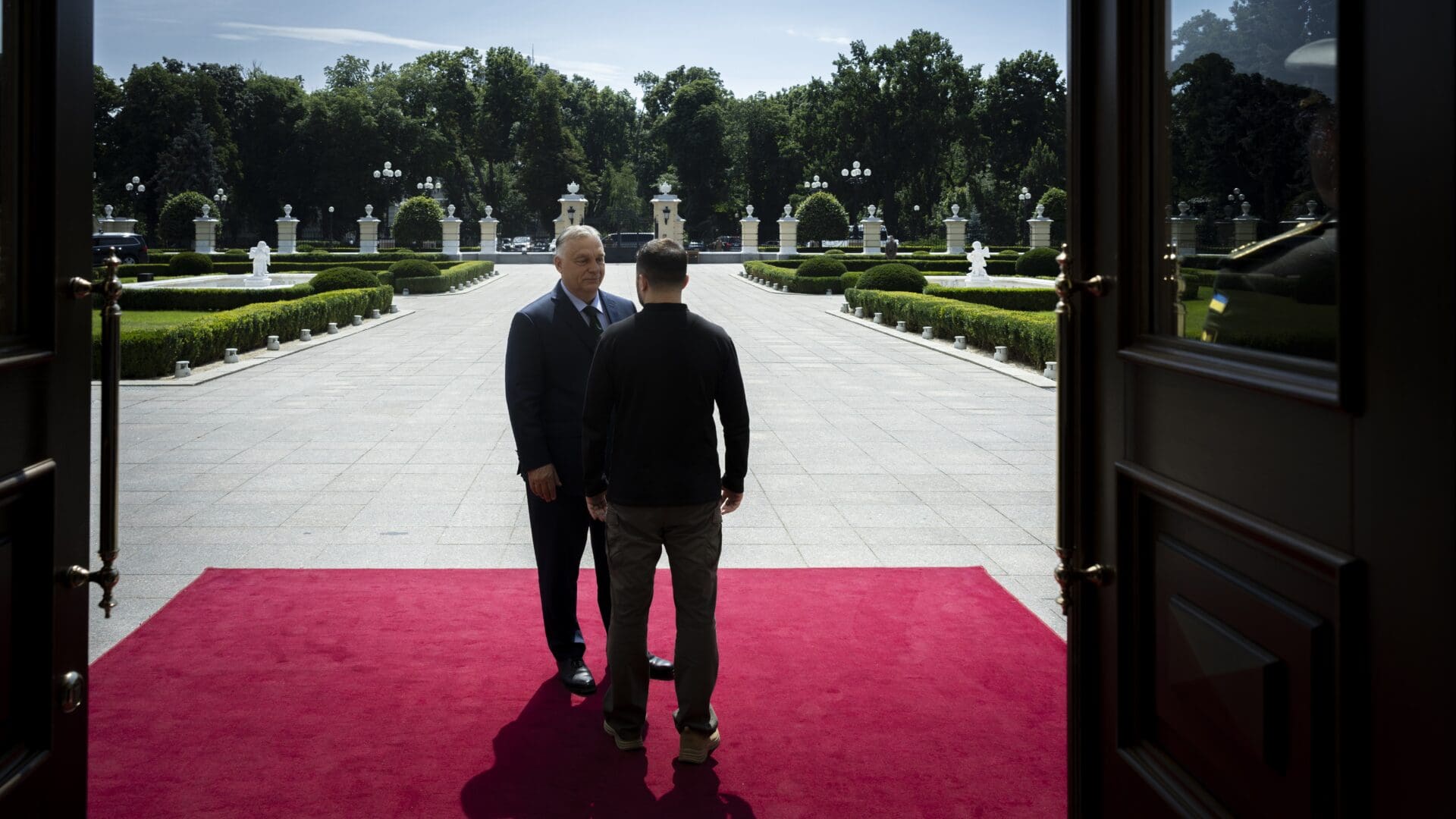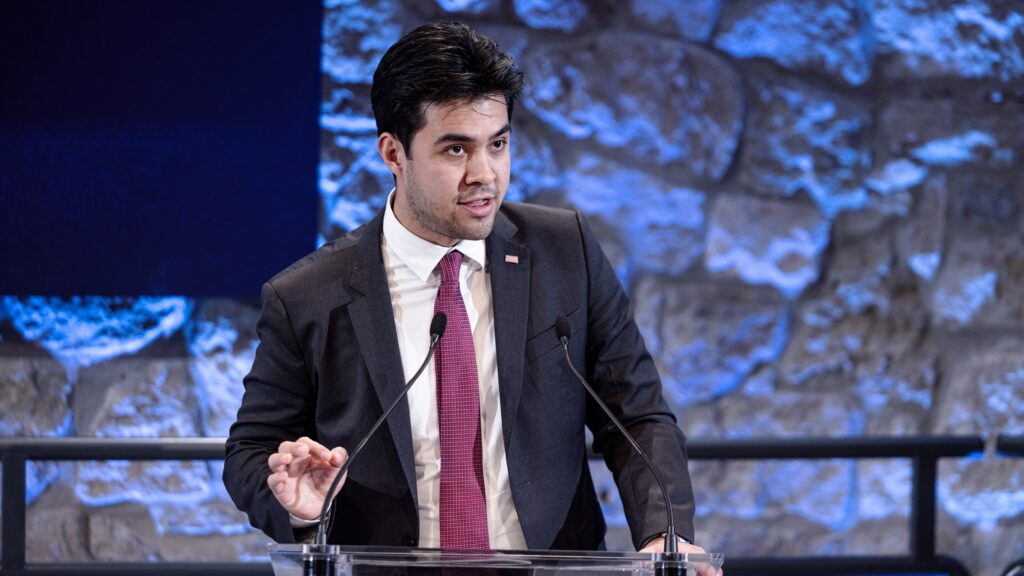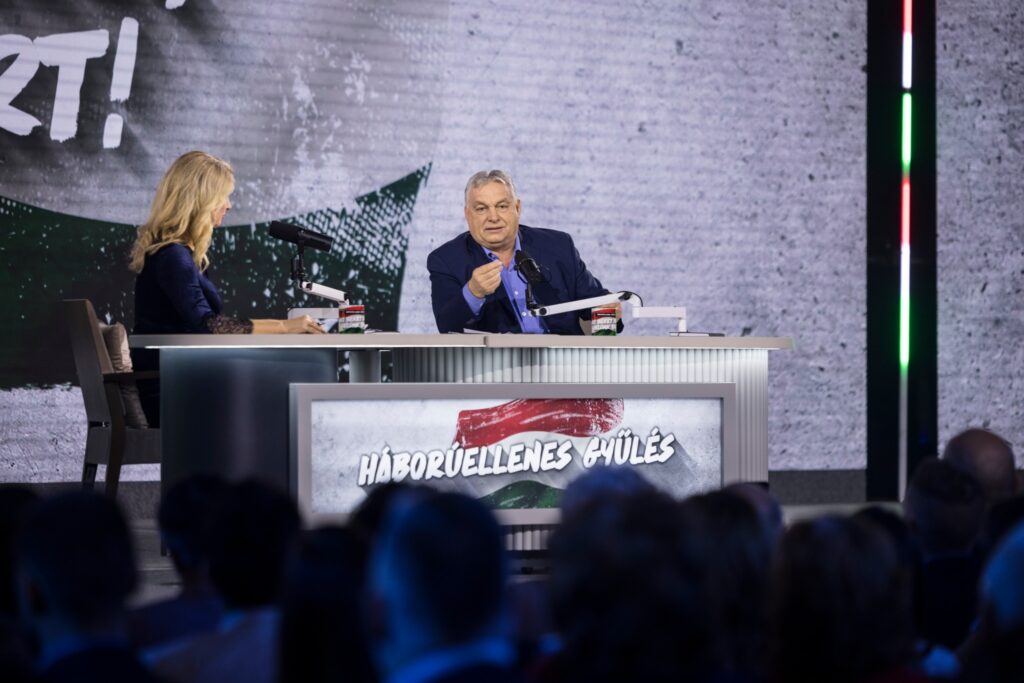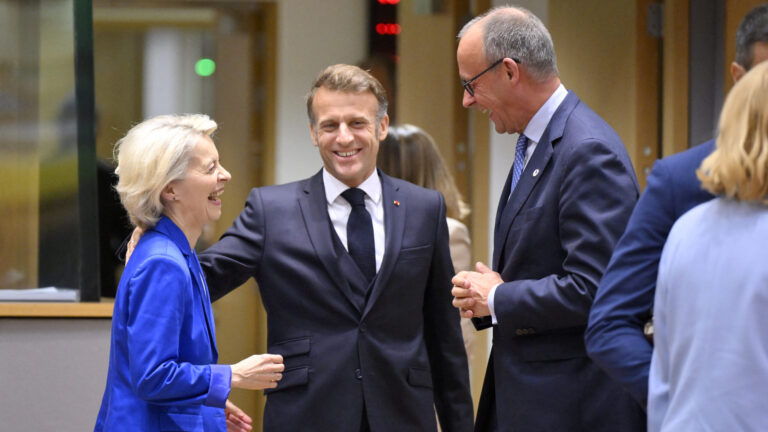In a somewhat unexpected turn for the international media, earlier this week Prime Minister Viktor Orbán visited Kyiv. The meeting was historic not because it was the first time in more than a decade that a Hungarian prime minister visited the country’s eastern neighbour, but primarily due to the results it might yield.
On 1 July Hungary took over the rotating presidency of the Council of the EU; in this context it is highly important that Viktor Orbán’s first visit led to Ukraine. Apparently, Hungary intends to use the rotating presidency to act as a mediator between Kyiv and Moscow. The aspiration that Budapest will use the next six months to work on helping the two sides come to the negotiating table was strengthened by Péter Szijjártó’s call during the Orbán–Zelenskyy meeting to Russian foreign minister Sergey Lavrov (the Kremlin had apparently not been notified of the Kyiv meeting in advance) and Viktor Orbán’s visit to Moscow a couple of days later.
Since the very beginning of the war Budapest has consistently held the opinion that a ceasefire and then a peace agreement needed to be achieved between the two sides as fast as it is possible. As soon as Hungary took over the rotating presidency, the Hungarian government again emphasized that peace is in the interest not only of Budapest but of the European Union, too. Orbán underscored the urgency of peace during his meeting with Zelenskyy, and discussed with Putin the idea of agreeing on a ceasefire first and negotiating the exact details of peace while the hostilities are paused.
Reacting to the meeting in Kyiv press secretary Dmitry Peskov highlighted that Hungary holds the rotating EU presidency, and ‘as a result’, he believes that ‘obligations to Brussels interests will take primacy in this case, rather than national interests’. In other words, the Kremlin regarded the visit more as the manifestation of EU rather than Hungarian policy, a sentiment Putin echoed during the press conference in Moscow held jointly with Orbán.
Ukrainian press reports welcomed the Hungarian leader’s visit to their country, but far from unanimously.
Numerous news sites rehashed the narrative that Hungary maintains close ties with Russia and reminded that Budapest also blocked sending aid to Kyiv. Similar opinions were voiced during Orbán’s visit to Moscow a couple of days later, claiming that the move ‘angered many in the EU’. Albeit the reactions from both sides demonstrate what Viktor Orbán also acknowledged in Moscow, namely that ‘positions are far apart’, it is unquestionable that without resuming dialogue with and between the parties at war it is impossible to achieve peace.
While little is known about what agreements were made behind closed doors, part of the officially announced successes of the meeting in Kyiv was the promise to open a Ukrainian language school in Hungary, where both Hungarian Ukrainians and Ukrainian refugees can study.
Viktor Orbán also reassured Kyiv that Budapest will help the reconstruction of Ukraine, modernizing the country’s economy. Zelenskyy on the other hand highlighted the plans to organise a peace summit before the end of this year.
Most importantly, a Russian delegation will also be invited to participate in the summit
(they were not invited to the Summit in Switzerland). If both Kyiv and Moscow actually attend the summit, it could be the first considerable attempt since peace talks broke down in Istanbul in 2022 to restore dialogue between the two sides. Albeit it is yet unknown whether the peace summit will indeed take place and where it will be held, a curious hit to its planned location could be the news that Hungary is allegedly considering leaving the International Criminal Court. The ICC issued an arrest warrant against the Russian President, and as a signatory Budapest might need to arrest him if he arrives in the country—but if Hungary left the Court, it would not have such an obligation. The exact motivations of considering leaving the ICC and whether it will actually happen is not clear at this point, however.
Hungarian–Ukrainian Relations: Where Do we Stand Now?
Even if Hungary’s ambitious plans to arbitrate between the two countries are not realized,
the Orbán–Zelenskyy meeting was an important step to normalize relations between Hungary and Ukraine.
Hungary’s relationship with Ukraine first started to worsen in 2015 when Kyiv adopted a language law that restricted the country’s Hungarian minority’s right to use their mother tongue. The language law and subsequent other legislations mandated the use of Ukrainian in schools and seriously restricted the use of minority languages in the public sphere even in those localities where the majority is not ethnically Ukrainian. Tensions continued to rise between the two countries after two arson attacks were carried out on the headquarters of the Transcarpathian Hungarian Cultural Association in Ungvár (Uzhhorod). After a failed attempt the second time the cultural centre was burnt down. Kyiv’s plans to strengthen the Beregszász (Berehove) Military Base in Transcarpathia—bringing 1,000 troops to the region not far off from the Hungarian border— also put a strain on Hungarian–Ukrainian relations.
Just months before the war a 15-year-old contract with Gazprom that attempted to avoid transferring energy to Hungary through Ukraine also led to sabre-rattling between the two sides, but later the political dispute was resolved with an agreement granting income to Ukraine from transit fees for the years to come.
Relations between the two countries reached an all-time low soon after Ukraine was invaded. While Ukraine took issue with Budapest’s anti-sanctions policy from the early days of the war, the relationships furthered worsened when it turned out that during the 2022 campaign the opposition’s candidate, Péter Márki-Zay contacted the Ukrainian President. Albeit the two did not have an online meeting, for a while their teams were in communication, which the Hungarian government interpreted as meddling in the country’s domestic affairs. The discussions between the two politicians’ teams, and Zelenskyy’s comments criticizing Hungary’s Ukraine policy in front of the European Council, were deemed highly inappropriate by Budapest.
It was from about December 2023 that relations started to normalize. In December last year a new law created a distinct category for ‘EU minorities’ in Ukraine (such as the Hungarian and Romanian ethnic minorities) that now have access to more privileges than for instance the Russian minority. Later, as a sign of goodwill to better relations, Foreign Minister Péter Szijjártó visited Ukraine. Now, with the meeting between Orbán and Zelenskyy the two country’s relationship is officially warming up. If in the long-term Budapest does manage to considerably contribute to peace between Russia and Ukraine, as it clearly intends to, it might have a long-lasting positive impact on bilateral relations.







